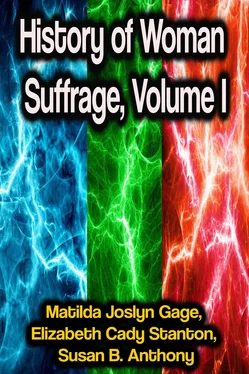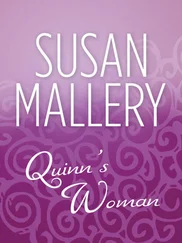From December, 1863, to March, 1866, I was in Washington, D. C., writing in the Military or Revenue Departments, or occupying the position of Matron in the Home for Colored Orphans, which had been opened in the second year of the rebellion, by the help of the Government and the untiring energy of a few noble women intent on saving the helpless waifs of slavery cast by thousands upon the bare sands of military freedom.
In the autumn of 1867, the Legislature of Kansas having submitted to the voters of the State a woman suffrage amendment to its Constitution, I gave some four weeks to the canvass, which was engaged in by some of the ablest friends of the cause from other States, among them Lucy Stone, Rev. Olympia Brown, Elizabeth Cady Stanton, and Susan B. Anthony. In our own State, among others, Governor Robinson, John Ritchie, and S. N. Wood of the old Free State Guard, rallied to the work. With the canvass of Atchison and Jefferson Counties, and a few lectures in Douglass, Shawnee, and Osage Counties, I retired from a field overlaid with happy reminders of past trials merged in present blessings. The work was in competent hands, but the time was ill-chosen on account of the political complications with negro suffrage, and failure was the result.
Since December, 1871, my home has been in California, where family cares and the infirmities of age limit my efforts for a freer and a nobler humanity to the pen. Trusting that love of God and man will ever point it with truth and justice, I close this exposé of my public life.
[22] Mrs. Nichols had written up a case occurring among the subscribers to the Democrat, in which $500, the whole estate, was divided, the half of that amount being all the law allowed for the support of a woman, then in the decline of life, and sent fifty marked copies of the paper to members of the Legislature elect. One of them introduced the bill, which passed the first day of the session.
[23] The violent throbbing of Mrs. Nichols' heart, caused by her unusual position and her intense anxiety that her plea might be successful, had stopped her speaking at the close of a brief preface to her plea. She, however, soon rallied, though her voice was tremulous throughout, from the conviction that only an eminently successful presentation of her subject, could spike the enemy's batteries and win a verdict of "just and womanly." Mrs. Nichols hoped no further than that. She did not expect conservative Vermont to yield at once for what she asked, as she stood alone with her paper among the press; and there was no other advocate in the State to take the field.
[24] The head and front of the opposition was Judge Kingman, Chairman of the Judiciary Committee, to which, with the Committee on Elections, my petition was referred. He wrote the Report against granting our demand, and of those who signed it all but (Gen.) Blunt and himself were Democrats. The report was adopted by a solid vote of the Democrats (16), and enough Republicans to make a majority. Thirty-six Republicans and 16 Democrats comprised the whole delegation. If my memory is not at fault, 27 Republicans voted in caucus for the provisions which were ultimately carried in our behalf, which was a majority of the whole Convention. In caucus a majority were in favor of political rights; but only a minority, from conviction that Woman Suffrage would prevent admission to the Union, would vote it in Convention.
CHAPTER VIII.
MASSACHUSETTS.
Women in the Revolution—Anti-Tea Leagues—Phillis Wheatley—Mistress Anne Hutchinson—Heroines in the Slavery Conflict—Women Voting under the Colonial Charter—Mary Upton Ferrin Petitions the Legislature in 1848—Woman's Rights Conventions in 1850, '51—Letter of Harriet Martineau from England—Letter of Jeannie Deroine from a Prison Cell in Paris—Editorial from The Christian Inquirer — The Una , edited by Paulina Wright Davis—Constitutional Convention in 1853—Before the Legislature in 1857—Harriet K. Hunt's Protest against Taxation—Lucy Stone's Protest against the Marriage Laws—Boston Conventions—Theodore Parker on Woman's Position.
During the Revolutionary period, the country was largely indebted to the women of Massachusetts. Their patriotism was not only shown in the political plans of Mercy Otis Warren,[25] and the sagacious counsels of Abigail Smith Adams, but by the action of many other women whose names history has not preserved. It was a woman who sent Paul Revere on his famous ride from Boston to Concord, on the night of April 18, 1775, to warn the inhabitants of the expected invasion of the British on the morrow. The church bells pealing far and near on the midnight air, roused tired sleepers hurriedly to arm themselves against the invaders of their homes.
During the war two women of Concord dressed in men's clothing, captured a spy bearing papers which proved of the utmost importance to the patriot forces.
During these early days, the women of various Colonies—Virginia, New York, Rhode Island, Massachusetts—formed Anti-Tea Leagues. In Providence, R. I., young ladies took the initiative; twenty-nine daughters of prominent families, meeting under the shade of the sycamore trees at Roger Williams' spring, there resolving to drink no more tea until the duty upon it was repealed. The name of one of these young ladies, Miss Coddington, has been preserved, to whose house they all adjourned to partake of a frugal repast; hyperion[26] taking the place of the hated bohea. In Newport, at a gathering of ladies, where both hyperion and bohea were offered, every lady present refused the hated bohea, emblem of political slavery. In Boston, early in 1769, the matrons of three hundred families bound themselves to use no more tea until the tax upon it was taken off. The young ladies also entered into a similar covenant, declaring they took this step, not from personal motives, but from a sense of patriotism and a regard for posterity.[27] Liberty, as alone making life of value, looked as sweet to them as to their fathers. The Women's Anti-Tea Leagues of Boston were formed nearly five years previous to the historic "Boston Tea Party," when men disguised as Indians, threw the East India Company's tea overboard, and six years before the declaration of war.
American historians ignoring woman after man's usual custom, have neglected to mention the fact that every paper in Boston was suspended during its invasion by the British, except the chief rebel newspapers of New England, The Massachusetts Gazette and North Boston News-Letter , owned and edited by a woman, Margaret Draper.
They make small note of Women's Anti-Tea Leagues, and the many instances of their heroism during the Revolutionary period, equaling, as they did, any deeds of self-sacrifice and bravery that man himself can boast.
The men of Boston, in 1773, could with little loss to themselves, throw overboard a cargo of foreign tea, well knowing that for the last five years this drink had not been allowed in their houses by the women of their own families. Their reputation for patriotism was thus cheaply earned in destroying what did not belong to them and what was of no use to them. Their wives, daughters, mothers, and sisters drank raspberry, sage, and birch, lest by the use of foreign tea they should help rivet the chains of oppression upon their country. Why should not the American Revolution have been successful, when women so nobly sustained republican principles, taking the initiative in self-sacrifice and pointing the path to man by patriotic example.
In Massachusetts, as in other States, were also formed associations known as "Daughters of Liberty."[28] These organizations did much to fan the nascent flames of freedom.
The first naval battle of the Revolution was fought at Machias, Maine, then a part of Massachusetts. An insult having been offered its inhabitants, by a vessel in the harbor, the men of the surrounding country joined with them to avenge this indignity to their "Liberty Tree," arming themselves, from scarcity of powder, with scythes, pitchforks, and other implements of peace. At a settlement some twenty miles distant, a quantity of powder was discovered, after the men had left for Machias. What was to be done, was the immediate question. Every able-bodied man had already left, only small boys and men too aged or too infirm for battle having remained at home. Upon that powder reaching them the defeat of the British, might depend. In this emergency the heroism of woman was shown. Two young girls, Hannah and Rebecca Weston, volunteered their services. It was no holiday excursion for them, but a trip filled with unseen dangers. The way led through a trackless forest, the route merely indicated by blazed trees. Bears, wolves, and wild-cats were numerous. The distance was impossible to be traversed in a single day; these young girls must spend the night in that dreary wilderness. Worse than danger from wild animals, was that to be apprehended from Indians, who might kill them, or capture and bear them away to some distant tribe. But undauntedly they set out on their perilous journey, carrying twenty pounds of powder. They reached Machias in safety, before the attack on the British ship, finding their powder a most welcome and effective aid in the victory which soon crowned the arms of the Colonists. The heroism of these young girls was far greater than if they had fought in the ranks, surrounded by companions,'mid the accompaniments of beating drums, waving flags, and all the paraphernalia of war.
Читать дальше












